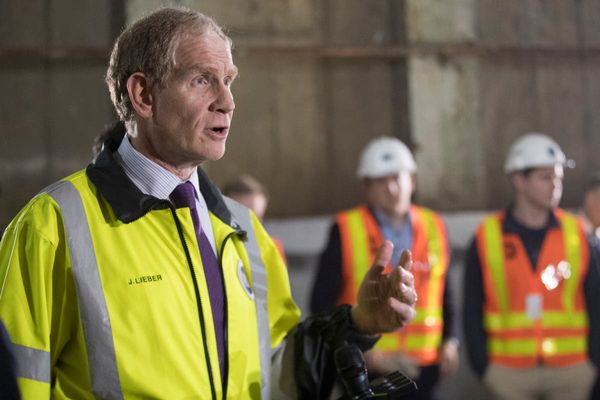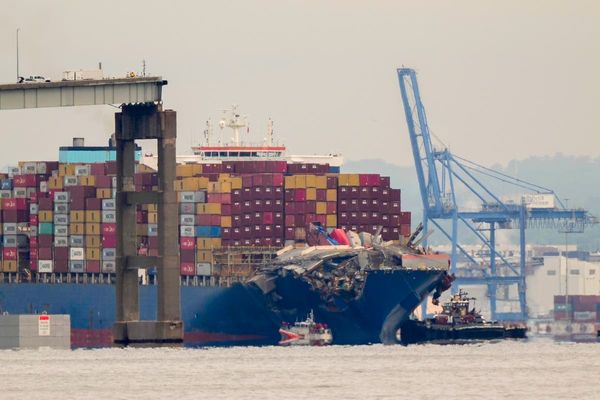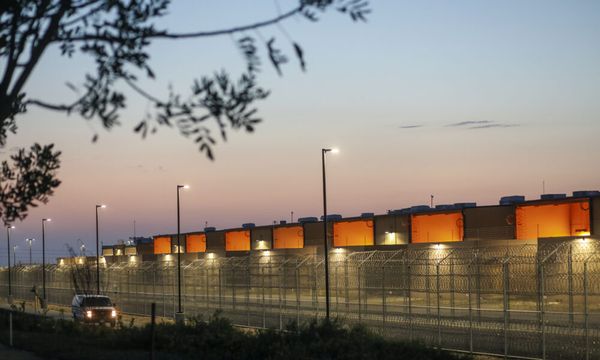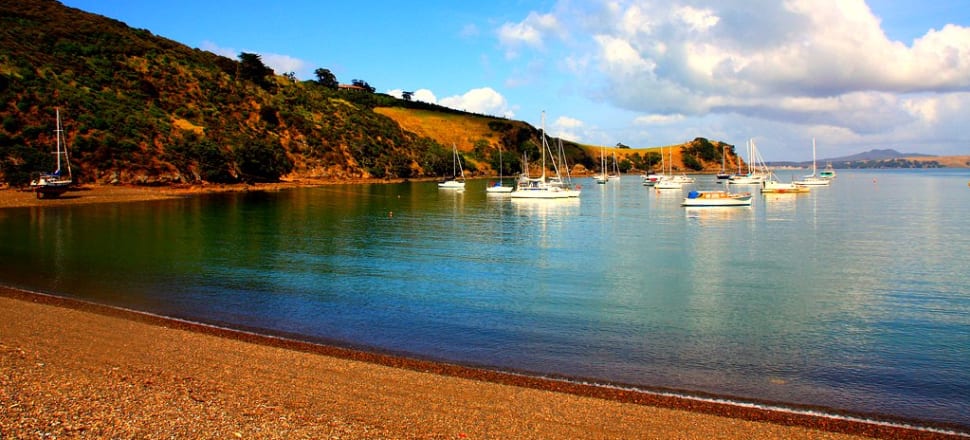
The proponents of a new marine reserve off the coast of Waiheke Island are accusing the Department of Conservation of “bureaucratic slow-rolling”
A group of advocates for marine conservation in the Hauraki Gulf are incredulous at the Department of Conservation’s lack of progress on a proposal for a marine reserve off the coast of Waiheke Island, despite its overwhelming public support.
Conservation group Friends of the Hauraki Gulf is asking why DoC is “slow-walking” the decision for the Hākaimangō-Matiatia Marine Reserve application, which they said would be “a real sea-change” for the protection of marine life in the area.
Public submissions for the 2,350 hectare reserve off the northwest coast of Waiheke Island closed in March, with 93 percent of 1303 submissions in favour of the reserve - including 95 percent of Waiheke residents and 70 percent of Māori submitters.
For one month after submissions closed, original author of the proposal Friends of the Hauraki Gulf had a month to answer any objections to the proposal to the Director-General of Conservation, before DoC provided advice to the Minister of Conservation.
However, well over 100 days after this period finished, the group is complaining DoC has yet to provide advice to the Minister on this, or provide a definitive timeline on when the next step in the process will occur.
Group chair Mike Lee is a Waiheke resident, former councillor and current candidate for the Waitematā and Gulf ward.
He said the hold-up was unacceptable, and compared DoC’s speed of movement on the reserve to development at the Kennedy Point marina.
“One can only contrast this bureaucratic slow-rolling with DoC’s double-quick sign-off of the Waiheke marina at Kennedy Point, green-lighting major construction, controversially endangering a breeding penguin colony, and effectively privatising the area,” he said.
He said DoC was hiding behind treaty partner obligations that didn’t seem to apply when they were signing off the marina developments.
“It seems DoC is using the principles of the Treaty of Waitangi, which evidently didn't apply for the marina, as a pretext for effectively doing nothing, allowing its current interpretation of Treaty principles to deliberately block a process enshrined in law,” he said. “Given the current state of the Hauraki Gulf this is just not acceptable.”
He said hold-ups by DoC were preventing the Minister of Conservation, Poto Williams, from being able to make a decision any time soon.
DoC's director of planning, permissions and land Steve Taylor disagreed with allegations of 'slow-walking'.
"To the best of our knowledge, this process has not been slower than previous marine reserve application processes," he said. "We are focused on ensuring that our advice to the minister is thorough and robust, and that the views of affected iwi, hapū and whānau can be accurately and appropriately conveyed."
He said establishing a marine reserve takes time and each step can't be missed or rushed.
"In the past, reserves have taken from two (in the case of the West Coast Marine Reserves) up to 16 years (in the case of Whangarei Harbour Marine Reserve) from application to being gazetted, due to the many competing interests and extensive consultations necessary," he said.
While there has not been a formal visit to the site, he said one is planned for September.
He said submissions and objections from the public form a core part of the decision-making process, and once the decision goes to the Minister, it is her choice to uphold any objections made, regardless of the ratio of submissions being in favour or against.
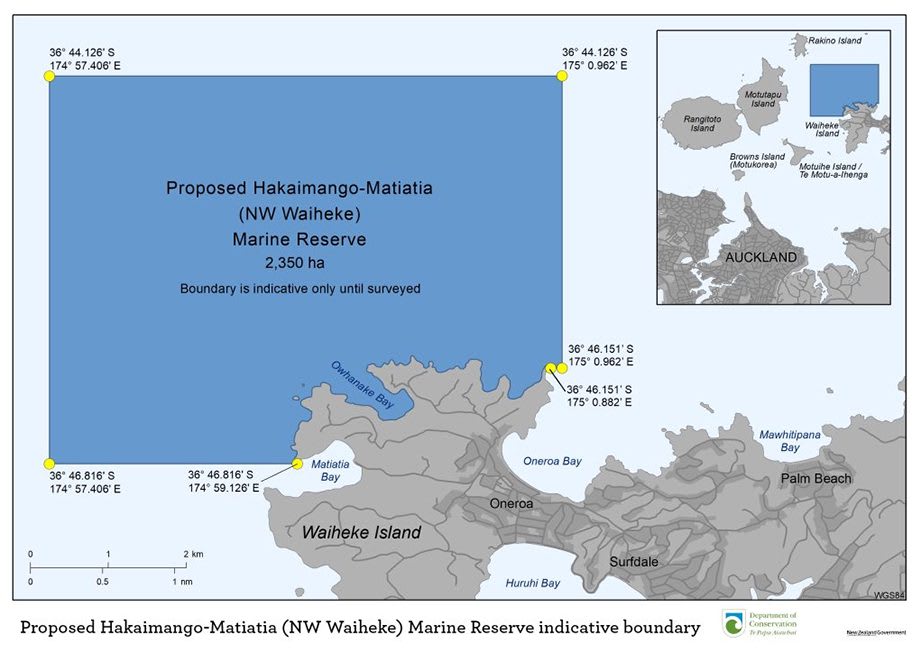
In a letter to the group, DoC deputy general manager of operations Henry Weston said the department was working on getting advice to Williams by the end of 2022, but this depended on how long it would take to canvas the opinions of a wide range of affected parties.
“As far as we are aware this is the first application for a marine reserve from a third-party applicant in over a decade,” he said. “This has meant a degree of uncertainty about how long a full assessment of the application would take and necessitated due diligence of the process.”
He pointed out previous third-party reserve applications which had even longer timeframes for the decision being made, such as the Tapuae Marine Reserve, which was established off the coast of New Plymouth in 2008.
Weston said the process around DoC developing its advice for the minister was technically and legally complex, requiring input from a range of outside parties such as local iwi and hapū, Fisheries New Zealand and the Ministry of Transport.
“I understand you have expressed frustrations about the ‘ongoing’ nature of this engagement, but this is an important part of the department being an honourable Treaty partner,” he said. “It is an important component in ensuring any decision made is fair, lawful, and robust.”
DoC provided Friends of the Hauraki Gulf with a provisional timeline indicating a scientific review and technical assessment of the proposal is ongoing.
An impact assessment by Fisheries New Zealand should be finishing around now, with review and input by a legal team and Treaty specialists set to get underway.
Following that, a final review of the final draft by local iwi and the proposal author is expected in mid-October, before a Crown law review. Then, DoC expects to deliver its final advice on the matter to the Minister in December.
However, DoC noted these timeframes were ambitious, with projected timespans subject to resource availability outside the direct project team.
Lee noted the proposal has the full support of the Ngāti Paoa Trust Board, the local Piritahi Marae, descendants of the 19th century Ngāti Paoa and Te Uri Karaka rangatira and the Protect Pūtiki anti-marina activists.
He said that given the sometimes divisive and controversial state of historical marine reserve applications, this one had broad and emphatic support.
“We must assume that this is another indication of just how concerned New Zealanders have become to see meaningful steps taken to protect and restore the marine environment by the authorities,” he said. “A sea change indeed.”
